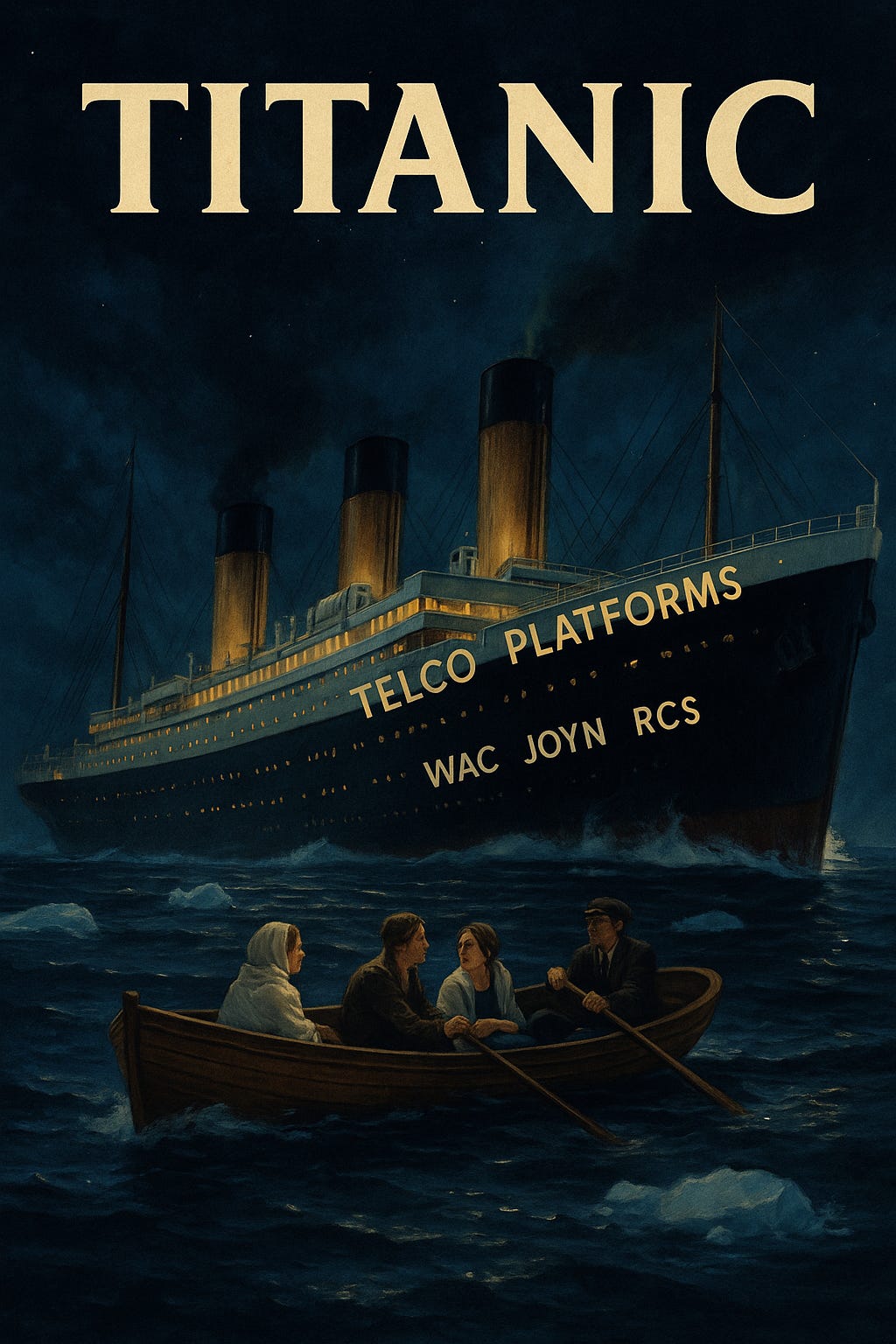Why Telcos Can’t Do Platforms: Lessons from the Titanic
They had the SIM, the billing, the APIs, the data. And still, their platforms sank while Apple, Meta, and Stripe sailed away.
The Titanic Metaphor
Telecom operators have spent two decades trying to build platforms, and almost every attempt has gone down in flames, much like the Titanic. They had every advantage: the SIM card, the world’s most widely distributed secure element, direct billing relationships with billions of customers, APIs for identity and location, and a firehose of usage data. On paper, it looked “unsinkable.” And yet, one after another, Joyn, RCS, WAC, Vodafone 360, and operator app stores launched with great fanfare but sank within sight of shore.
The parallel with the Titanic is apt. The ship was the largest of its time, armed with cutting-edge engineering and trumpeted as invincible. What doomed it wasn’t a lack of metal or manpower, but a blindness to speed and agility. Icebergs move faster than committees. In the telecom industry, the key players were WhatsApp, Apple, and Stripe. Small, fast, and developer-obsessed, they launched lifeboats while carriers were still christening their grand vessels. WhatsApp reached 400 million users before RCS managed a credible rollout. Apple created an App Store with 500 apps at launch, while the Wholesale Applications Community spent years drafting specs no developer wanted to read. Stripe solved payments in two lines of code; telcos tried to do the same through 2,000-page documents written by standards bodies.
The result is visible in every corner of the industry: a long trail of rusted hulls called “initiatives” that never made it across the Atlantic. The story isn’t about a lack of assets; telcos had them in abundance. It’s about cultural DNA. The utility mindset, which excels at scale, compliance, and stability, is the very opposite of what makes a platform thrive. Platforms reward speed, simplicity, and developer love. Telcos delivered slowness, complexity, and gatekeeping.
And so, just like the Titanic, telco platforms didn’t fail because they lacked grandeur. They failed because they mistook size for inevitability and control for adoption. Meanwhile, the lifeboats rowed away and built empires on top of the very networks carriers owned.
Case Studies of Failure: The Icebergs They Hit
The wreckage of failed telco platforms is not abstract. It is specific, documented, and consistent. Each was billed as the next big thing, each followed the same pattern, and each sank for the same reasons.
Keep reading with a 7-day free trial
Subscribe to Sebastian’s Substack to keep reading this post and get 7 days of free access to the full post archives.


